With the economy down, people are resorting more and more to insurance fraud as an easy and quick way to make some money. However, this means insurance companies are cracking down more and more. There is now a wide-established list of “red flags” (also known as “suspicious loss indicators”) that raise an insurer’s suspicion to spot potentially bogus claims. Take it from Tom Welsh, a member of the National Insurance Crime Bureau, “”The industry has many, many, many years of experience in detecting insurance fraud; don’t try it because it’s just not worth it.”
Not only does insurance fraud make victims out of insurance companies, but also their customers too. In the United States alone (excluding health insurance fraud) insurance fraud exceeds $40 billion annually! That price is paid by you and me in higher annual insurance premiums than you deserve, just because companies have to account for money lost to fraud. Therefore, as a consumer, insurance scams should concern you since the cost is passed directly on to you in the form of higher rates. According to the US Chamber of Commerce, fraud adds 25% to property and casualty insurance rates!
What is insurance fraud and what can you do to help fight it? In plain terms, insurance fraud is intentionally lying or deceiving an insurer in order to make money or become insured. Some common versions of fraud include:
- “padding” (inflating the true amount of) a claim
- lying or hiding (concealing) important information when applying for insurance
- lying or hiding (concealing) important information when reporting a loss
- submitting false claims
- “staging” accidents
- Failing to report recovered property
- faking theft claims
- committing (home or vehicular) arson for profit
Source: Producer Online, Rough Notes E-Marketing
In 1992, the National Insurance Crime Bureau (NCIB) was created to help insurers combat customer fraud. The NCIB consists of about 1,000 members ranging from insurance companies to self-insured businesses. In 2009, the members of NCIB made about 143,000 requests for help assessing suspicious claims which were detected using the 23 “suspicious loss indicators” that have been developed by the NCIB to detect fraud.
The Coalition Against Insurance Fraud (CAIF) has even developed a Hall of Shame for the worst insurance fraud criminals each year. Each class holds quite a few unintelligent, brazen, and even violent stories but the following one hits home to us in the Charlotte, NC area!
“Michael Howell. The Charlotte, N.C. insurance agent was stealing premiums from clients and not buying them the promised coverage. Concerned by mounting complaints, the state insurance department sent auditor Sallie Rohrbach to investigate Howell’s books.
She never returned home. Howell murdered her when she got too close to the truth.
Howell had heisted more than $150,000 in premiums from hundreds of clients, leaving them dangerously uncovered. He never confessed to killing Rohrbach, but his wife admitted he’d privately told her he’d snapped and hit Rohrbach with a computer table. Howell finally led investigators to her decomposed body hidden in the woods. He’ll serve up to 35 years.”
It was discovered in a study by the CAIF that people commit insurance fraud for one of three reasons: to make money, to pay for otherwise unaffordable work to a car or home, or to strike back against perceived unfairness by insurers. In survey done by the Insurance Research Council (IRC), a whopping 24% of people felt that “padding” a claim was okay in order to recover a deductible. Don’t be one of those people!
In order to fight high rates from insurance fraud, people need to take a stand against it. If you know of someone committing fraud or have witnessed an incident of insurance deception, report it to the NICB immediately. Not only are you doing the right thing ethically, but you are helping yourself financially!
For a free North Carolina insurance quote or for more information on NC insurance visit our website today, or call 877-318-5951 to talk to one of our helpful agents!


